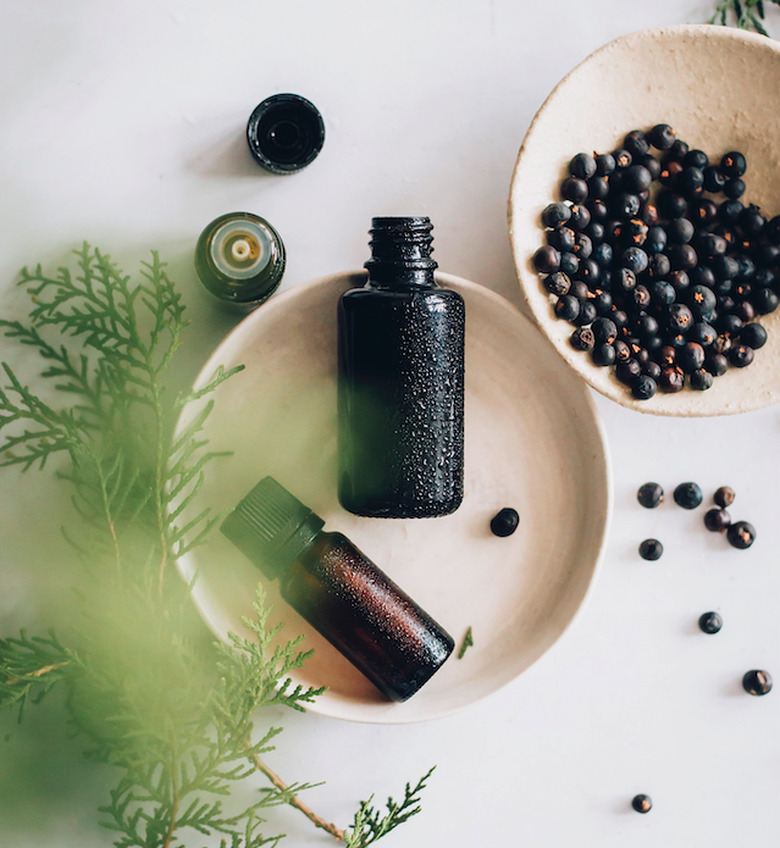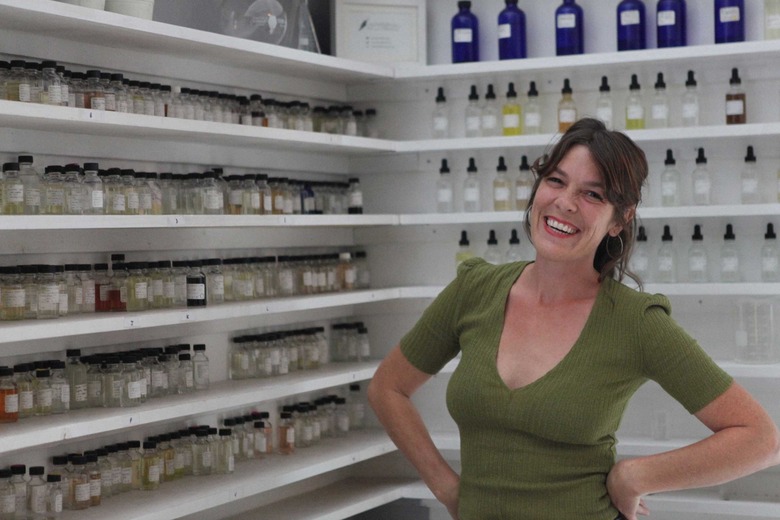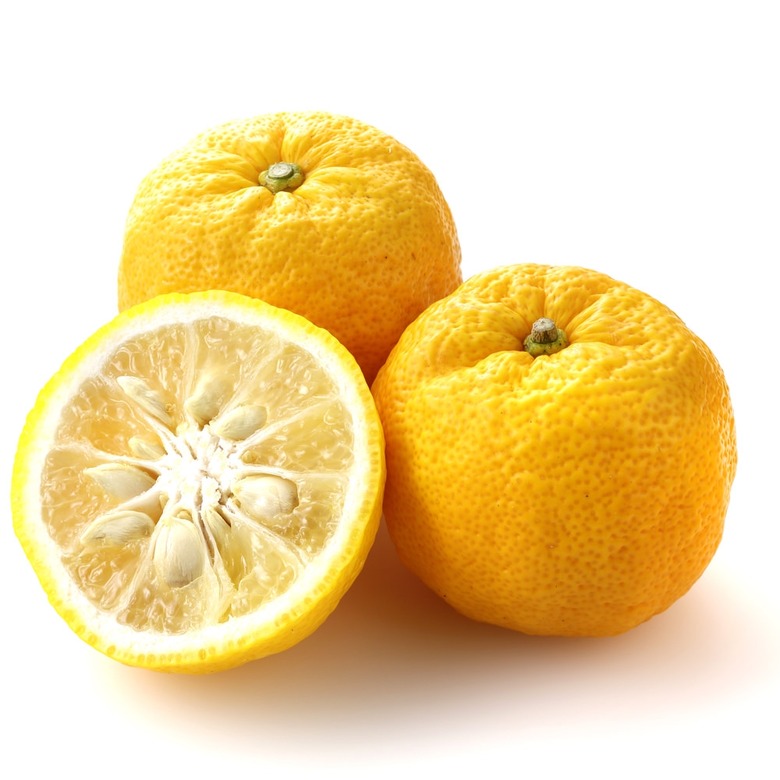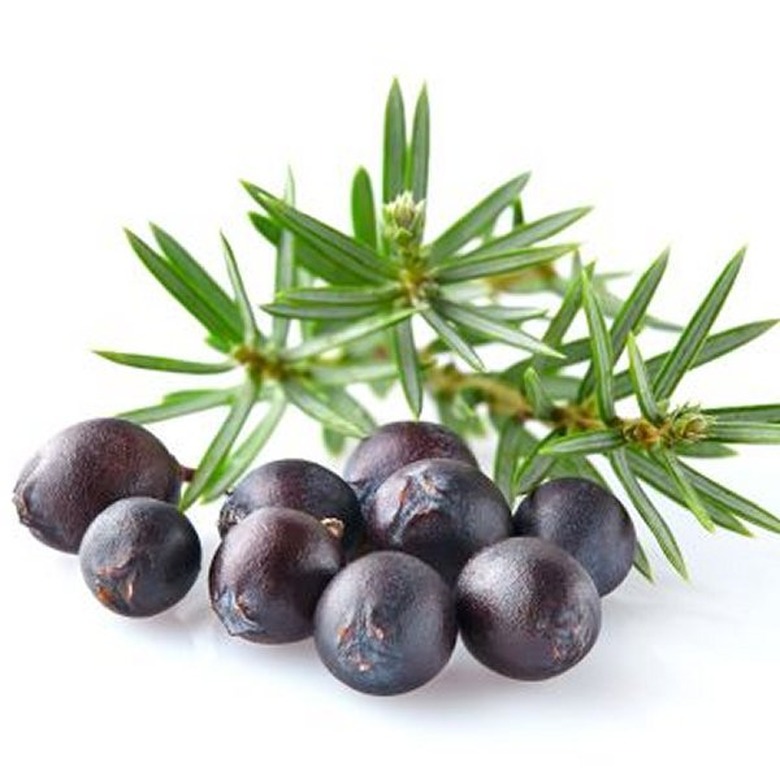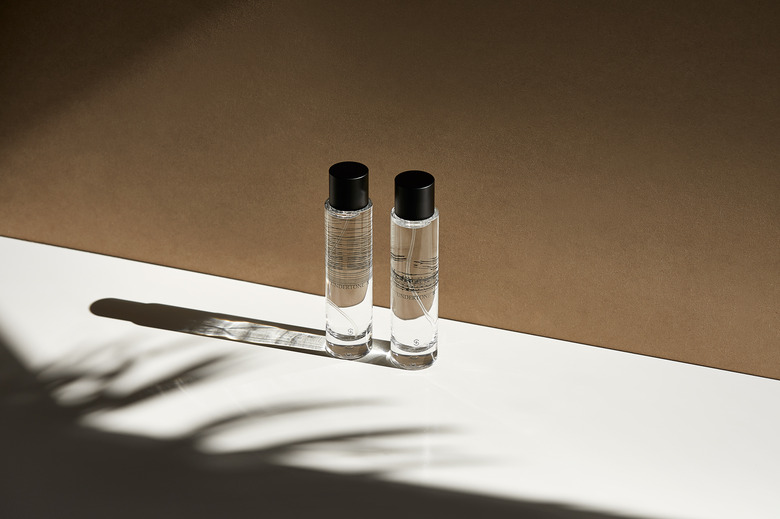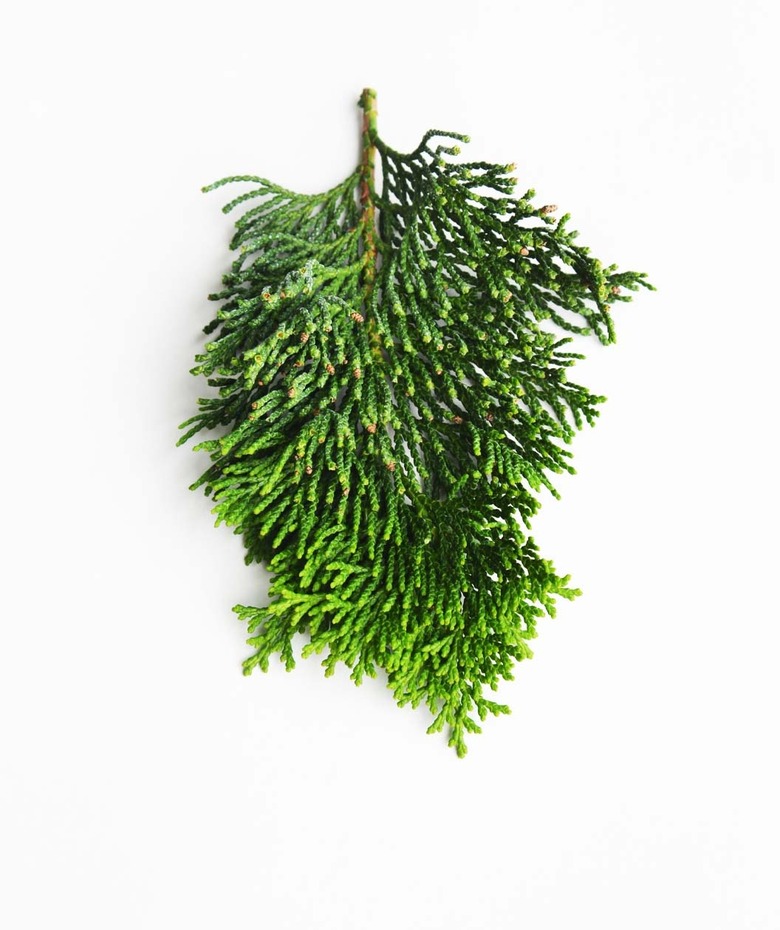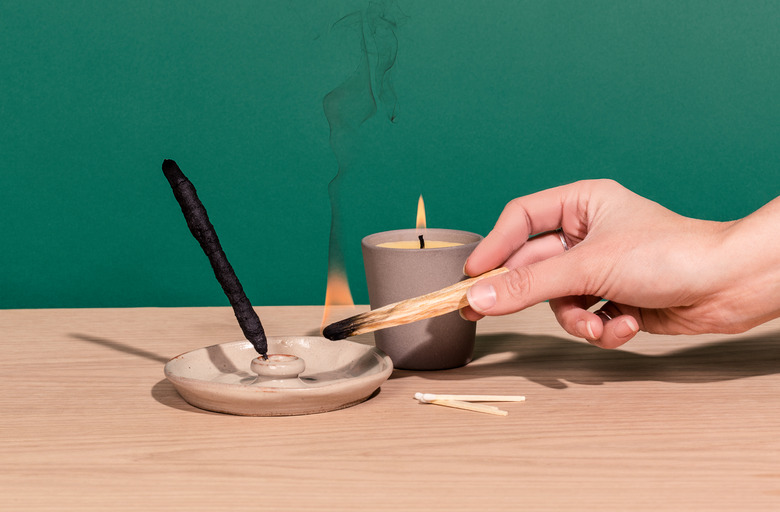These Particular Scents Bring Calm And Tranquility To Your Home (Plus, Products To Try)
Bringing comfort and warmth to your home involves a multisensory approach. You can visually have the most stunning living area, but if it isn't pleasing to your sense of smell, good luck finding serenity in it. As we spend more time indoors, introducing scents to calm the soul can be among the most uplifting additions to your home.
We turned to one of the most exciting figures in the world of scents, Saskia Wilson-Brown, founder and executive director of the Los Angeles–based Institute for Art and Olfaction, to explore what scents have the potential to bring you tranquility. At their experimental perfume laboratory in Chinatown, the nonprofit organization is dedicated to using the medium of scent in creative and unexpected ways: from developing scent-oriented art exhibits and programs with museums and hosting educational workshops on fragrances to producing the annual Art and Olfaction Awards, which celebrates innovative work in scent from around the world. "The goal is to show how scent is a vital creative practice and to get people excited about it, working with it, and engaging with the sense of smell," says Wilson-Brown, who recently gave a talk on scents for mindfulness at Japan House. Here are six calming scents of the moment she suggests.
1. Yuzu
1. Yuzu
Wilson-Brown: "With regards to using scent for soothing and for mental health, while there is quite a bit research, there is relatively little consensus. A little caveat is in order: People will bring their own factors to the equation. Lavender may be soothing for one person, but might not be for someone else."
"Common wisdom has it that citrus scents are considered as uplifting. For instance, smelling yuzu, blood orange, bergamot, and grapefruit is said to reduce anxiety, with an uplifting effect. Perfume history supports this. There's a reason why all these citrus notes have been used so much in classical perfumery. Citrus notes are top notes, the notes you smell first when you're spraying a perfume and the first to disappear. You often experience them as the bright first impressions in classical compositions. A good example is Eau de cologne, which was allegedly Napoleon's favorite perfume. The classic formula, developed in the late 17th century by an Italian living in Cologne, Germany, used bergamot as a top note. The effect is an uplifting first impression, bright and maybe even comforting."
"Yuzu, in particular, is a Japanese fruit that is having a moment in perfumery. Its smell is reminiscent of lemon: a tart scent with a slight floralcy that is really pretty. I've been enjoying exploring it in room sprays, as a way of introducing bright citrus scents into my home."
2. Clary Sage
2. Clary Sage
Wilson-Brown: "Clary sage is a euphoric, dreamy sort of smell, for me. It is native to the Mediterranean Basin, and folk wisdom has it that it invokes a sense of somnolent happiness. While this isn't based in cold, hard science as far as I know, it works for me. For whatever reason, I've come to associate the smell with sleep. L.A. perfumer Sherri Sebastian has a pillow spray called Purusa, which is just lovely. You fall asleep to a low-tone, fluffy, dreamlike smell."
Try: Sebastian Signs Purusa® Dream Extract Pillow Spray, $28
3. Juniper Berry
3. Juniper Berry
Wilson-Brown: "Juniper berry is the main component of gin. In folk wisdom, it's said to be strengthening and uplifting. There's a really interesting relationship between perfumery and gin. Gin contains incredibly intense aromatics like angelica root, coriander, sometimes orris root (the rhizome of the iris flower). It's the perfume of alcohol. The smell of juniper berry feels strengthening. It's vaguely camphorous (think of the smell of VapoRub) and it also has a slight woodiness. It opens the nose, as it were. You can buy the essential oil online, or in a nice perfume, or, heck, in a good bottle of gin."
4. Brioche
4. Brioche
Wilson-Brown: "Ladurée, known for their macarons, makes a brioche candle that smells delicious. I love this candle because it smells homey, mouthwatering, comforting, and slightly abstracted. The smell of baked goods is said to be comforting and in this case I agree. It's not cheap but it lasts a long time. We've had our candle for over a year: we preserve its use carefully."
5. Undertone
5. Undertone
Wilson-Brown: "I also often spray interior fragrances by Scenthouse: Undertone A and Undertone B. These two smells were made by an L.A. perfumer named Ashley Eden Kessler in collaboration with CJ Powers. Ashley is a master of her craft (full disclosure, she teaches at the Institute for Art and Olfaction). She is schooled in the French approach, and understands the traditional sophisticated perfume compositions that we all know and love from the 20th century. I call her the Persian cat of American perfumery because her work is so sinuous and well-bred. But she's nonetheless very modern. She knows what's up."
"For his part, CJ Powers, is an entertainment industry executive who is very interested in the power of scent, and who has impeccable taste. Undertone A and Undertone B are two scents that live in the lower parts of my consciousness and fill the same space that the brioche candle does. They're named undertones for a reason. I would describe them as bloody gorgeous in a honeyed woody kind of way; as comforting as running your hand over velvet, or stroking the belly of a purring cat, or listening to ASMR videos on YouTube. They're soft, lo-fi, and don't overwhelm."
6. Hinoki Cypress
6. Hinoki Cypress
Wilson-Brown: "A raw material that could suggest is the essential oil extracted from hinoki wood (a Japanese cypress). Everyone says that lavender is soothing, which I suppose is true. But if you want something a bit less generic, hinoki is lovely. It's been a popular note in avant-garde perfumery for the last decade or so, thanks to the influence of Comme de Garçons and their very well-respected perfumes. But fashion aside, the smell of hinoki wood has a dry, herbal, warm woody quality. It's good stuff."
Try: Eden Botanicals Hinoki Wood Essential Oil, $11+
Just Remember, It's Personal
While Wilson-Brown has suggested a variety of scent forms, it comes down to personal preference. For instance, many people don't choose incense because they don't like smoke, though, she notes, "When you burn incense, you're engaging in tradition. If you were to define perfume as human-intervened combination of aromatics, incense is the oldest form of perfume . . . crucial and beautiful."
She adds that if you'd like to experiment with your own mixture, "Go online and order essential oils and have at it. Add a little bit of Frankincense to your lemon, for instance." But keep in mind health and safety. "Some essential oils can hurt people by burning the skin and other horrors. You have to be careful and dilute all your materials in an unscented alcohol or a carrier oil." (Or, try using a diffuser.)
If you're interested in classes at The Institute for Art and Olfaction, you can view their upcoming online workshops here, and mark your calendars for Scent Week in September in Los Angeles.
In addition to the scents shared, also consider what smells bring you contentment. Is it the smell of a family dessert from childhood, that incense everyone burned in college, or your mom's favorite perfume? Invite these nostalgic scents into your home, and with them, comforting memories as well.
